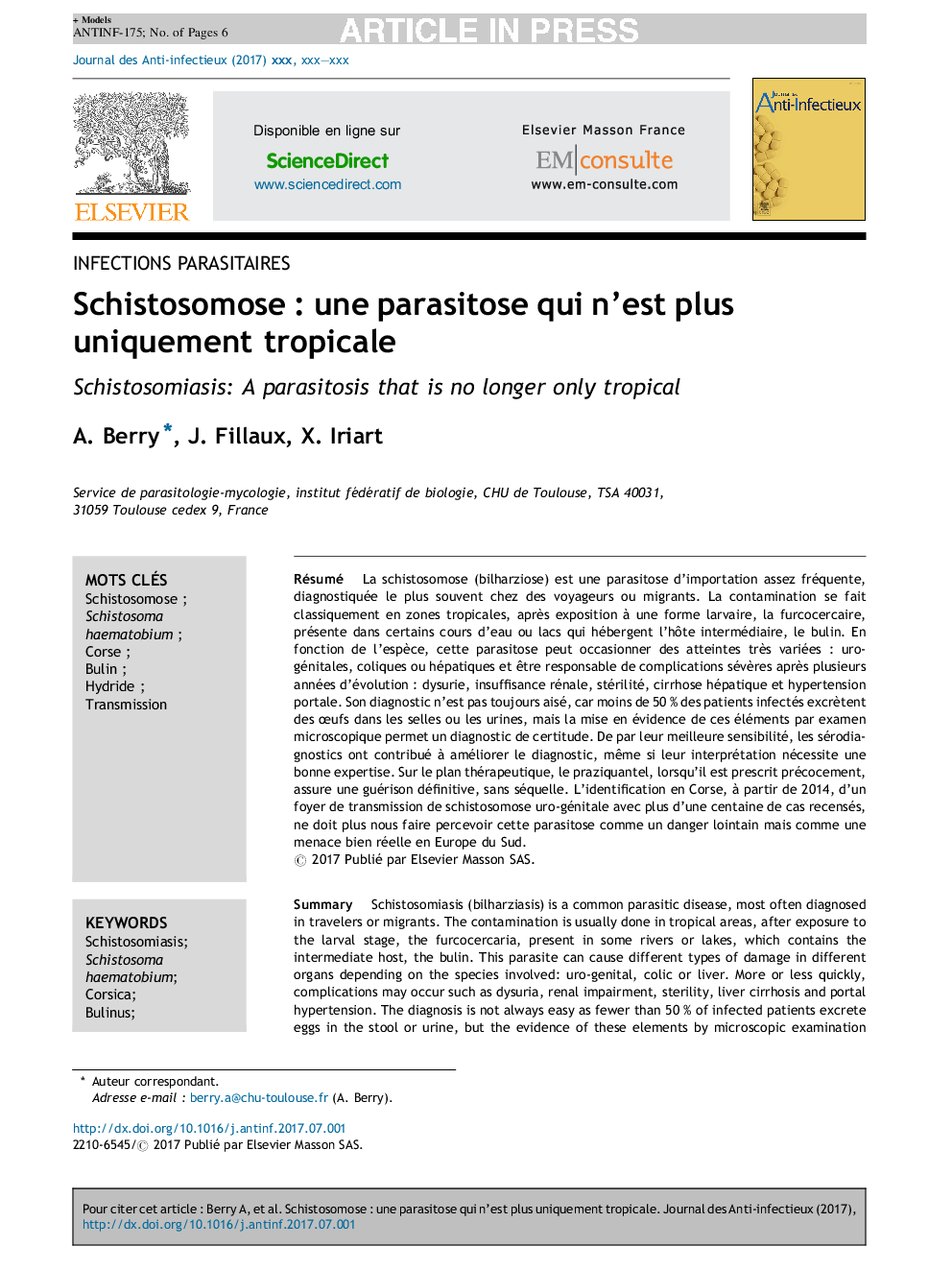| Article ID | Journal | Published Year | Pages | File Type |
|---|---|---|---|---|
| 8746036 | Journal des Anti-infectieux | 2017 | 6 Pages |
Abstract
Schistosomiasis (bilharziasis) is a common parasitic disease, most often diagnosed in travelers or migrants. The contamination is usually done in tropical areas, after exposure to the larval stage, the furcocercaria, present in some rivers or lakes, which contains the intermediate host, the bulin. This parasite can cause different types of damage in different organs depending on the species involved: uro-genital, colic or liver. More or less quickly, complications may occur such as dysuria, renal impairment, sterility, liver cirrhosis and portal hypertension. The diagnosis is not always easy as fewer than 50Â % of infected patients excrete eggs in the stool or urine, but the evidence of these elements by microscopic examination provides proof of diagnosis. Because of their better sensitivity, immunodiagnosis have contributed to improved diagnosis even if their interpretation requires good expertise. Therapeutically, praziquantel, when prescribed early, ensures a definite cure without sequelae. Identification in Corsica, from 2014, of an outbreak of uro-genital schistosomiasis with more than a hundred cases recorded, should no longer make us perceive this parasitosis as a distant danger but as a real threat in Southern Europe.
Keywords
Related Topics
Health Sciences
Medicine and Dentistry
Infectious Diseases
Authors
A. Berry, J. Fillaux, X. Iriart,
